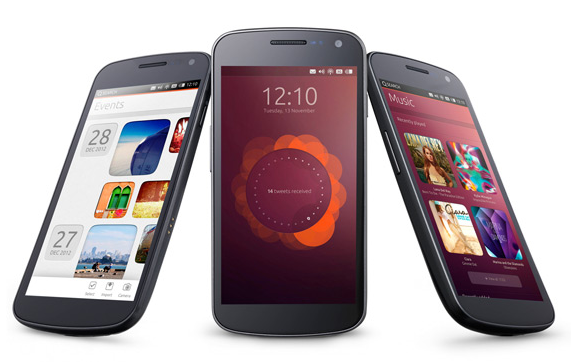
In the mobile space, most everything major is divided between two primary platforms we're all too familiar with: Apple's iOS or Android from the search giant Google.
Chances are, if any new mobile application is released, it hits iOS first and later trickles down to Android. Windows Phone support is optional. And even less important is BlackBerry support, at least from the perspective of a developer, whose main intent is to provide a great app or service and earn an income.
But application support isn't the only metric that tells a daunting tell for essentially any mobile platforms outside Android or iOS. As of November, Android held 53.6 percent of the U.S. smartphone market share, according to comScore. Apple took 34.3 percent. That leaves only 12.1 percent for the remaining platforms to fight for. BlackBerry claimed 7.8 percent, Microsoft (including Windows Mobile and Windows Phone) grabbed 3.2 percent and Symbian held only 0.6 percent. (The remaining 0.5 percent is unaccounted for.)
This is the same story that most of 2011 and 2012 told. Competition in the mobile space is stronger than ever, and Android and iOS are extremely difficult to compete with.
Windows Phone 8, while it has gained some die-hard fans, has yet to leave the starting line. Between March and June, Microsoft's market share dropped from 3.9 to 3.8 percent. And between July 2012 and October 2012, Microsoft's market share dropped from 3.6 to 3.2 percent. With the Windows Phone 8 launch now behind us, Microsoft's market share might surge. But it still has as mountain to climb to take from the likes of Android and iOS lovers.
Still, talk of new or up-and-coming mobile operating systems is growing each and every day. There are a half dozen mobile operating systems with a decent following currently in the making: Open webOS, Ubuntu Phone OS, Tizen OS, BlackBerry 10, Firefox OS and Sailfish OS.
It doesn't take years of analyst experience or any sort of training to realize that all of these mobile platforms cannot be wildly successful. Development support would take a major hit if there were seven or eight major platforms and ecosystems. It would be virtually impossibly for indie developers to support even a third or fourth of the biggest platforms. Hardware manufacturers would have to pick and choose mobile platforms, limiting the luxury of consumer choice in both hardware and software (i.e.: pick your software, then choose a manufacturer).
That's not to say more competition and choices for consumers is a bad thing. But in this space, as far as software developers are concerned, there are such things as too much competition and too much choice. Third-party application developers are, in a nutshell, the decision makers in what mobile platforms live or die. (Why else would Research In Motion put so much effort into getting developers to create applications for BlackBerry 10 prior to the platform's launch?)
Of the up-and-coming mobile platforms, only three truly stick out with a serious chance of success: BlackBerry 10, Tizen OS and Windows Phone.
Of those, Tizen OS is probably the most promising, software aside. It has a world class hardware maker – Samsung Mobile – with deep pockets backing it. And as time has shown, scoring a big name hardware manufacturer to back an upcoming mobile platform is often the difference between success and failure.
Microsoft has seriously deep pockets, too, and is fully dedicated to the mobile world. As I explained almost one year ago, it will be difficult for Microsoft to fail as it is earning revenue whether Windows Phone is successful or not. Patent dispute settlement payments mean Microsoft is successful if Android is successful. There are at least 11 Android handset manufacturers paying licensing agreements to Microsoft between $5 and $15 per unit. It will continue to bring Windows Phone into the limelight and can afford to do so for as long as Android manufacturers continue to pump out smartphones.
And Research In Motion is no stranger to the mobile realm. The Canadian handset maker has fallen from its spot at the top, but has restructured the company, regrouped and built a mobile platform from the ground up. RIM knows 2013 is do or die, and an announcement has been marked for January 30th in New York City.
The only other yet-to-be-released smartphone OS that has a slight chance at success is Ubuntu Phone OS from Canonical. Ubuntu – the desktop platform – has several hardware manufacturers backing the project. Canonical will face tons of adversity in the mobile landscape, but the software is compelling, innovative and gorgeous. As an Ubuntu fan, I would love to see Ubuntu Phone OS succeed more than any other. But that may prove to be a pipe dream.
One thing is certain, however: there isn't space for all the up-and-coming platforms and the existing platforms to succeed. Android and iOS are extremely stable in their positions at the top. Your votes in our poll from yesterday suggest Windows Phone, Ubuntu Phone OS and BlackBerry 10 have piqued your interests. Which ones will come out on top?